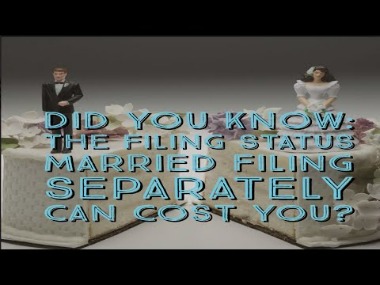
Depreciation is computed using various methods as a straight-line method, double declining method, units of production, and the sum of years digits method. The IRS publishes depreciation schedules detailing the years an asset can be depreciated for tax reasons based on various classes of assets. Assets like land with uncertain accounting periods are also excluded from depreciation. Amongst the two options, the depreciation process is a preferred method companies use because it reduces the initial immediate cost of the asset. A business has the choice as to how to take a depreciation deduction. They can choose to either write the cost off as an expense or they can deduct it as depreciation.
Manufacturers: Tax strategies for bonus depreciation phase-out … – The Business Journals
Manufacturers: Tax strategies for bonus depreciation phase-out ….
Posted: Fri, 01 Sep 2023 12:28:00 GMT [source]
A variable cost can change, depending on the production and sales levels of products or services. Depreciation can be computed using many methods, such as the straight-line method, the sum of breaking down reconciliation years digits method, the double declining method, and production units. The accumulated depreciation is deducted from the asset’s historical value to derive the asset’s written-down value.
Operating Income Before Depreciation & Amortization
The income statement of a company includes different types of expenses. Depreciation is such expense that is included in the income statement. Depreciation is the process of deducting the value of a physical or tangible asset over its useful life. If the asset is not directly related to the core business operations depreciation, of that asset will be a non-operating expense.

Depreciation replicates the period and scheduled conversion for a fixed asset into an expense as the asset is used during normal business operations. As the assets are used to generate operating income in the normal course of business, depreciation expense is considered an operating expense. There is often debate around whether depreciation should be considered an operating expense or a non-operating expense. Operating expenses are costs related to the day-to-day activities of running a business, while non-operating expenses are those incurred outside of normal business operations. An operating expense is an expense that a business incurs through its normal business operations.
Depreciation Expense
When companies depreciate their assets, they can plan how much money is written off each year. The time period in which an asset is depreciated is determined by its useful life. Buildings, vehicles, computers, real estate, and office furniture are some assets that can depreciate over their useful life. A non-operating expense is a cost that is unrelated to the business’s core operations. Depreciation expense is not a current asset; it is reported on the income statement along with other normal business expenses. It’s important to note that while depreciation is considered an operating expense on the income statement, it does not directly impact cash flow since it doesn’t involve any actual cash outlay.
Depreciation is one of the few expenses for which there is no outgoing cash flow. Cash is spent during the acquisition of the fixed asset, so there is no need to expend any more cash as part of the depreciation process unless the asset is being upgraded. Not accounting for depreciation can increase the profitability of a company.

Since the asset is part of normal business operations, depreciation is considered an operating expense. An expense incurred as a part of any regular business operations is considered an operating expense. The periodic, schedule conversion of a fixed asset into expense as an asset is called depreciation and is used during normal business operations.
Is Depreciation an Operating Expense?
Over time this could lead to lower asset values or require additional investment for replacement. The straight-line method is one such method that divides the total cost by the number of years in which an asset will provide benefit. So, depreciation is a non-cash component of operating expenses. An unusual expense that is not part of your operating expense would be supplying food to a market way outside your normal area. Since it is not a usual occurrence, the expense of the delivery is not factored into your everyday running costs, thus not making it an operating expense.
An operating expense would be paying your HGV drivers to deliver the food to supermarkets. It happens every day and is necessary to running your business. Based on the above para you would agree that all the operating expenses are presented on the debit side of profit and loss or an income statement. An operating expense is an expense that a business incurs for carrying on its normal operations.
A Guide to Depreciation for Small Businesses (
Accumulated depreciation will have a continually increasing credit balance, so it is referred to as a contra asset account. On top of that, it also conforms to the matching principle in accounting. Depreciation can be an operating expense or classified as the cost of sales.
- Similarly, the accounting for depreciation also reflects this classification.
- To determine attributable depreciation, the company assumes an asset life and scrap value.
- The difference between operating and non-operating expenses is operating expenses are related to the primary business operations but non-operating expenses are not.
- Essentially, this expense comes from the depreciation method used to depreciate an asset.
- Often abbreviated as OpEx, operating expenses include rent, equipment, inventory costs, marketing, payroll, insurance, step costs, and funds allocated for research and development.
IAS 16 does not allow companies to write off an asset in its acquisition period. Similarly, the matching principle in accounting may dictate the process. This principle states that companies must match expenses to the revenues they help generate.
Depreciation is a non-operating expense charged on the assets used in the business’s incidental activities. Depreciation is calculated annually and is debited to the Income Statement of Accounts. Depreciation gradually increases near the end of the asset’s useful life and cumulates as the costless salvage value. Double-declining balance and sum-of-the-years-digits calculations make the assumption that the asset will be more productive at the start of its useful life for the company. As such, they make a calculation that makes a sharp depreciation at the beginning of the asset’s life, as it is being used more, and then it balances out and loses less value as the years go on.
Operating expense
Accumulated depreciation is a measure of the total wear on a company’s assets. In other words, it’s the total of all depreciation expenses incurred to date. Accumulated depreciation is a running total of depreciation expense for an asset that is recorded on the balance sheet.
As per IAS 16, the depreciable amount is equal to the purchase cost of the asset, less the salvage value or other amount like the revaluation amount of the asset. Harold Averkamp (CPA, MBA) has worked as a university accounting instructor, accountant, and consultant for more than 25 years. He is the sole author of all the materials on AccountingCoach.com.
What is a capital expense?
Depreciation expense refers to the decrease in value of a company’s assets over time. Assets such as buildings, equipment, and vehicles are expected to lose their value as they age or become obsolete. Depreciation is not an actual cash outflow but rather a non-cash expense that affects the income statement. Depreciation is a part of the cost of sales and operating expenses.

